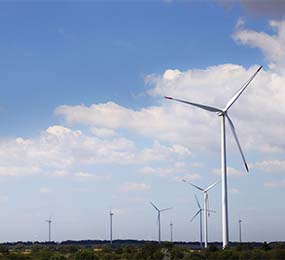The wind energy industry is generating a massive amount of data from turbines, sensors, weather stations, and grid interactions. This data holds immense potential to optimize operations, improve efficiency, and enhance the overall performance of wind farms. By effectively managing and analyzing this data, operators can unlock valuable insights and make data-driven decisions that drive success.
Key Aspects of Efficient Data Management:
- Data Collection and Storage:
- Implementing robust systems for collecting and storing data from various sources, including SCADA systems, sensors, and meteorological stations.
- Ensuring data integrity and accuracy through quality control measures.
- Utilizing secure and scalable data storage solutions, such as cloud platforms, to accommodate growing data volumes.
- Data Processing and Analysis:
- Employing advanced analytics techniques, such as machine learning, artificial intelligence, and statistical analysis, to extract meaningful insights from data.
- Utilizing data visualization tools to present complex data in a clear and understandable format, enabling easier identification of trends and anomalies.
- Data Security and Privacy:
- Implementing robust cybersecurity measures to protect sensitive data from unauthorized access, cyberattacks, and data breaches.
- Ensuring compliance with relevant data privacy regulations.
Applications of Data Management and Analytics:
- Predictive Maintenance: Analyzing historical data and real-time sensor readings to predict potential equipment failures, allowing for proactive maintenance and minimizing downtime.
- Performance Optimization: Identifying factors impacting turbine output, such as wind speed variations, blade pitch, and generator efficiency, to optimize turbine settings and maximize energy production.
- Grid Integration: Analyzing wind power output data with grid demand forecasts to optimize energy dispatch, ensure grid stability, and participate effectively in energy markets.
- Resource Assessment: Analyzing historical wind data, weather patterns, and topographical information to identify optimal locations for new wind farms.
- Risk Management: Assessing and mitigating risks associated with extreme weather events, grid congestion, and market fluctuations.
By effectively managing and analyzing data, wind farm operators can unlock new levels of efficiency, sustainability, and profitability. As data collection and analysis capabilities continue to advance, the role of data will become even more critical in shaping the future of the wind energy industry.
To register or learn more about the Forum please check here: https://bit.ly/3K0rUIz
For more information and group participation, contact us: [email protected]
















